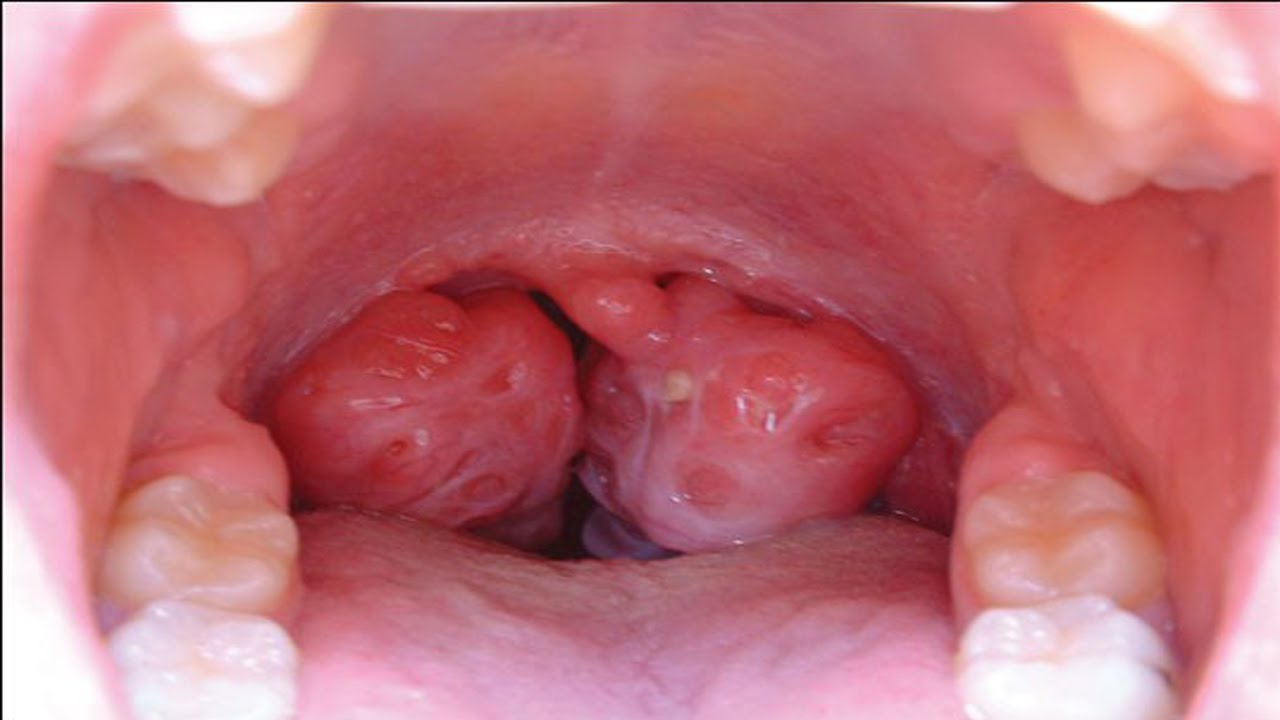There are two lymph nodes, tonsils, precisely located on the back of your throat, one on each side. Tonsils are a part of your immune system and helps prevent infections by keeping germs out of your system. Sometimes, your tonsils become infected and you develop a condition called tonsillitis. The condition can affect people of all ages, but it is usually more common in children. The most common symptoms of tonsillitis are fever, swollen tonsils, and a sore throat.
Is Tonsillitis Contagious?

No, the condition itself is not contagious, but the infections causing tonsillitis may well be. You may develop tonsillitis due to a viral infection, such as the common cold. A bacterial infection such as strep throat can also cause tonsillitis. When the condition develops due to viruses, it is possible for others to contract that infection by being exposed to an infected person.
Is tonsillitis contagious? The answer lies in the type of infection you have. When it is due to a viral infection, it stays contagious for about 7-10 days. You are contagious for the first few days even when strep bacteria cause your tonsillitis. The good thing is that antibiotics help shorten the contagious period.
How does It Spread?
Droplets of pathogens are released into air when an infected person coughs, breathes, or sneezes. Others can become infected when they inhale those droplets. It is also possible to become infected if pathogens get on your skin or you touch an infected surface and then touch your nose, mouth, or eyes with the same hand. You experience symptoms of tonsillitis in about 2-5 days after exposure.
Symptoms You Will Have If Infected
Many different symptoms may occur once you become infected and develop tonsillitis. The most common symptoms are a scratchy-sounding voice, a very sore throat, difficulty swallowing, fever, chills, earaches, and bad breath. Some people also experience headaches, stomachaches, and a stiff neck. Neck and jaw tenderness with tonsils that appear swollen and red are other common symptoms of tonsillitis.
Very young children may also have the same symptoms but they may also have poor appetite with excessive drooling and increased irritability. You should take your child to your doctor immediately if you notice any breathing problems. Swollen tonsils can obstruct the airways and may cause serious problems.
How to Prevent Spreading or Getting Tonsillitis
As you already know the answer to your question, "Is tonsillitis contagious?" you may be wondering what you can do to avoid getting infected or stop spreading it if you have already developed it. Here are a few tips to keep in mind:
- Be sure to wash your hands thoroughly before eating and after using the toilet and encourage your child to do the same.
- Do not share drinking glasses, food, water bottles and other utensils with others.
- Replace your toothbrush after you have been diagnosed with tonsillitis.
- Stay at home for the first few days to avoid spreading the infection.
- Ask your doctor for how long you need to avoid social gatherings – ask them when your child can resume school.
- Always sneeze or cough into a tissue and teach your child to do the same.
Keep the following points in mind to avoid getting infected:
- Do not shake hands or maintain any close contact with someone suffering from tonsillitis.
- Do not maintain prolonged contact with someone having tonsillitis caused by bacteria.
- Do not share your toothbrush or other personal items with someone suffering from tonsillitis.
- Always disinfect the surface that an infected person may have come in contact with.
What Can Be Done If You Are Infected?
You do not usually require any treatment for a mild case of tonsillitis. As you already know the answer to, "Is tonsillitis contagious?" you may want to talk to your doctor and seek treatment to avoid infecting others. Your doctor will consider the type of tonsillitis you have and may select the following treatment options:
- They will prescribe antibiotics if you have a bacterial infection. Be sure to complete your course of antibiotics even when you feel better after a few days of use.
- They may recommend surgery and remove your tonsils through a procedure called tonsillectomy. Your doctor may recommend a tonsillectomy only when you experience repeated tonsillitis.
